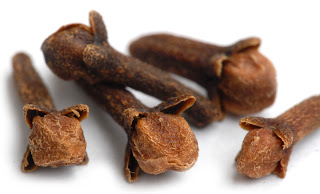Bad breath can happen to anybody, so use a few tips and tricks to ensure you don’t suffer from it.
by Beverley Lewis
Ever been in a situation, when you were trying to talk to someone and they were trying to avoid you by looking in another direction and wrinkling their noses, all because you have the breath of a dragon that lunched on an entire pod of garlic? Let’s face it, bad breath is very undesirable, uncomfortable, and can certainly ruin our day. But fortunately, these fixes will help tame your bad breath or halitosis.
 Hydrate. A dry mouth is a haven for bacteria that causes bad breath. So, swish water around in your mouth. Water will temporarily dislodge bacteria and make your breath a bit more palatable. At the end of a leisurely lunch or romantic dinner, munch the sprig of parsley that’s left on your plate. Parsley is rich in chlorophyll, a known breath deodoriser with germ-fighting qualities.
Hydrate. A dry mouth is a haven for bacteria that causes bad breath. So, swish water around in your mouth. Water will temporarily dislodge bacteria and make your breath a bit more palatable. At the end of a leisurely lunch or romantic dinner, munch the sprig of parsley that’s left on your plate. Parsley is rich in chlorophyll, a known breath deodoriser with germ-fighting qualities.
Oranges will kill it. If you can get your hands on an orange, peel and eat it. The citric acid it contains will stimulate your salivary glands and encourage the flow of breath-freshening saliva. If there are no oranges in sight, eat whatever is available, except known breath-foulers like garlic, onions or a stinky cheese. Eating encourages the flow of saliva, which helps remove the unpleasant, odour-causing material on the back of your tongue.
Scrape the tongue. Vigorously scrape your tongue over your teeth. Your tongue can become coated with bacteria that ferment proteins, producing gases that smell bad. Scraping your tongue can dislodge these bacteria so you can rinse them away. If you have a metal or plastic spoon, use it as a tongue scraper. To scrape safely, place the spoon on the back of your tongue and drag it forward. Repeat four or five times. Scrape the sides of the tongue as well, with the same back-to-front motion. Don’t push the spoon too far back, however, you may activate your gag reflex.
Raid the pantry. Cloves are rich in eugenol, a potent antibacterial. Simply pop one into your mouth and dent it with your teeth. The pungent aromatic oil may burn slightly, so keep  that spicy nub moving. Continue to bite until the essence permeates your mouth, then spit it out. Don’t use clove oil or powdered cloves; they’re too strong and can cause burns.
that spicy nub moving. Continue to bite until the essence permeates your mouth, then spit it out. Don’t use clove oil or powdered cloves; they’re too strong and can cause burns.
Seed it. Chew on fennel, cardamom, or anise seeds. Anise is known to kill the bacteria that grow on the tongue. The others can help mask the odour of halitosis or bad breath. Or you can suck on a stick of cinnamon. Like cloves, cinnamon is effective as an antiseptic.
Some more tips and tricks:
– Use a toothpaste that contains tea-tree oil, a natural disinfectant.
– Use an oral irrigator, which is a handheld device that rapidly pulses a small jet of water into your mouth, to flush out the bad bacteria, which can go deeper than a brush or floss string can reach.
can reach.
– Carry a toothbrush with you and brush immediately after every meal. With prompt brushing, you thwart the development of plaque, the soft, sticky film that coats the teeth and gums.
– To keep your toothbrush free of stink-triggering bacteria, store it, head down, in a lidded plastic tumbler of hydrogen peroxide. Rinse the brush well before you use it.
– If you wear dentures, it’s possible that they are absorbing the bad odours in your mouth. Always soak them overnight in an antiseptic solution, unless your dentist has advised you otherwise.
– Don’t skip meals. When you don’t eat for a long period of time, your mouth can get very dry. It becomes a perfect breeding ground for bacteria.
Some things can sour your breath even if there are no bacteria in the neighbourhood. These include cigarettes, alcohol, onions, garlic and especially strong cheeses like Camembert, Roquefort, and blue cheese. In situations where sweet breath is a must, use the commonsense approach—just say no.
With inputs from Devki Wakefield, Holistic Practitioner, Westchester, New York.




